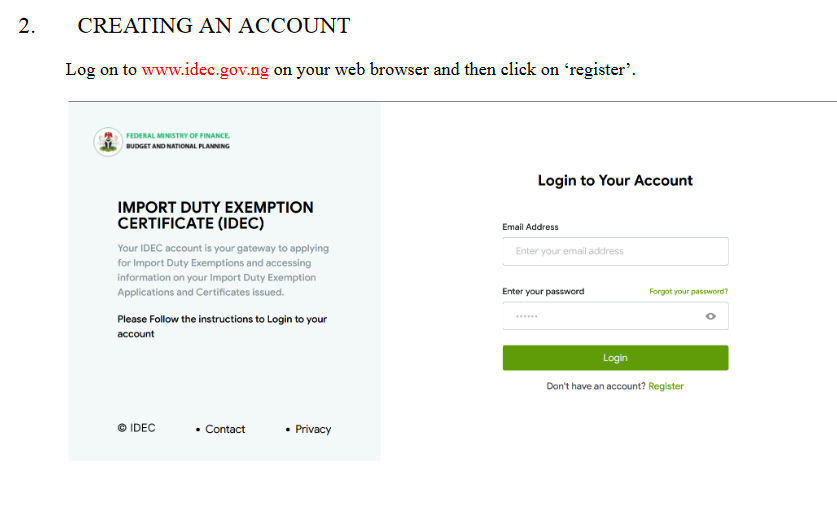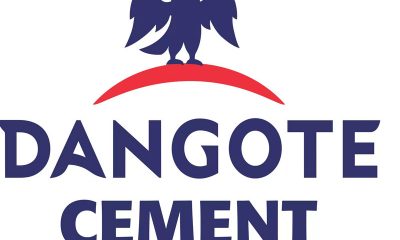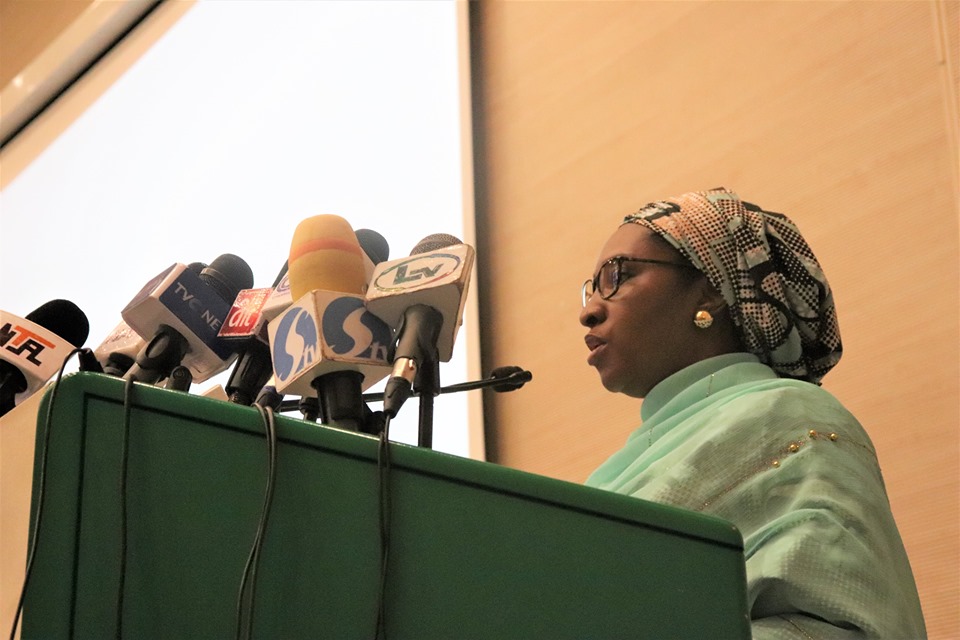Economy
Long-Term Tax Incentives to Firms for Projects Dangerous—CISLAC

By Modupe Gbadeyanka
Federal Government has been warned to avoid institutionalising a policy of the granting of long-term tax incentives to corporate businesses to achieve project implementation.
According to the Civil Society Legislative Advocacy (CISLAC), this has the tendency to create a distorted fiscal picture necessary for sustainable revenue and expenditure planning for infrastructural development.
In a statement signed by the Executive Director of CISLAC, Mr Auwal Ibrahim Musa (Rafsanjani), it was also noted that granting long-term tax incentives to firms for project implementation was susceptible to abuse and could create complex tax administration frameworks that would result in long term revenue loss to the nation.
“We are worried that the failure of government to deliver on its promise to Nigerians on infrastructure development, after over two years in office, due to the financial challenges because of dwindling revenues from oil, is driving her into panic mode and making her resort to desperate measures, including falling back on discredited and obsolete approach of handing out tax incentives to show results, probably for electioneering campaign prelude to 2019,” Mr Musa said.
The Executive Director pointed out that, “This must however not be done at the expense of long term national interest and development.”
He said CISLAC finds it disturbing that a country that is posting a debt to GDP Ratio of 16 percent and a budget deficit of about 31 percent of her annual budget in 2017, planning to borrow another $5.5 billion (about N1.9 trillion) to fund the 2017 budget, while already spending about 36 percent of scarce revenues to service debts and is in danger of losing international funding to provide social services, still finds it convenient to concede revenues through the use of incentives.
That this is done in exchange for road construction is quite embarrassing and an indictment of the government, he said.
“We remind the government that in the era of falling prices of commodities, including oil, dipping national oil reserves and waning demand for fossil fuels, countries are seeking alternative sources of revenues through domestic resource mobilization with emphasis of maximizing tax revenues to finance development and meet SDG goals.
“They are blocking tax loopholes, addressing illicit financial flows, tackling tax evasion and avoidance, re-negotiating fiscal regimes in contracts and doing away with granting of tax incentives.
“CISLAC understands that the arrangement reached with the Dangote Group to offer tax incentive in exchange for road construction falls within the purview of the CITA (Exemption of Profits Order 2012).
“However, the new National Tax Policy envisages that tax incentives are sector based and not directed at entities or persons that should provide a net benefit to the country, and equally available to all persons in the same class and be very clear and avoid ambiguity.
“We find no evidence that these principles have been followed in this case. The fact that the design and cost of the proposed road project is unknown, reveal the quality of thinking that went into this decision.
“We also find the review of the Order to extend from five years to ten curious. We are aware that this tendency for hasty and discretionary award of tax incentives is what makes it prone to abuse and corruption as has been with previous arrangements such as the Pioneer Status Incentives which this administration have had to cancel and review.
“For instance, have other cement companies being offered the opportunity to construct roads in exchange for tax incentives? How many of such is government willing to grant and what will be the cost? Is such concession exclusive to some entities? How many micro, small and medium enterprises businesses that have funded road rehabilitation, sunken boreholes and provided other public benefits to which the CITA (Exemption of Profits Order 2012) also applies have benefited from the order?
“CISLAC observes that the process leading up to this has lacked clarity and transparency as a cost-benefit analysis and report has not been publicly disclosed; there are no indications that similar corporate entities were offered equal opportunity.
“We find the very idea of offering firm tax incentives to build a road from which it directly benefits undesirable.
“We therefore call on the Minister of Finance to review this decision and ensure that this practice is stopped to avoid setting a dangerous trend that would hurt the nation in the long run. The actual revenue forgone should be computed and announced for all Nigerian to know by January 2017, as envisaged by the National Tax Policy.
“The process should be open to all potential beneficiaries in the sector, if it must proceed for fairness and equity.
“The FIRS should undertake a thorough audit at the appropriate time and publicly declare the implication to revenue to the Nigerian people.
“We call on the National Assembly Committees on Finance to interrogate this decision to ensure that it passes the tests of transparency and equity and is truly in the national interest. The relevant Committees must carry out effective oversight to ensure value for money, especially since any such incentive is meant to take effect only after the road project is completed.
“We call on the federal government to be mindful of the widening fiscal deficit, increasing national debt and wide infrastructural gap and bleak oil revenues and address these through better tax administration, tackling tax evasion and avoidance and illicit financial flows and ensure that all citizens and corporate businesses pay their fair share of tax.
“Government should adhere strictly to the implementation of the National Tax Policy and follow through her commitments in the OGP national Action Plan This is the only way for sustainable revenues to finance development for our people.”
Economy
FG Targets Credit Access For 50% Workers By 2030

By Adedapo Adesanya
The Vice President, Mr Kashim Shettima, inaugurated the Board of the Nigerian Consumer Credit Corporation (CREDICORP) and gave a 50 per cent access target for workers, saying consumer credit was critical to Nigeria’s ambition of becoming a one-trillion-dollar economy by 2030.
According to him, President Bola Tinubu established the CREDICORP to build a trusted credit infrastructure, provide catalytic capital to lower borrowing costs, and help Nigerians overcome long-standing cultural resistance to credit.
Speaking on Thursday in Abuja when he inaugurated the board on behalf of the President, the Vice President, in a statement by his spokesman, Mr Stanley Nkwocha, said that the quality of life of Nigerians cannot improve without closing the gap between access to capital and human dignity.
“A civil servant who earns honestly does not have to chase sudden wealth just to buy a vehicle, or save for ten years to buy one. A young professional should not remain in darkness simply because solar power must be paid for all at once,” the Vice President said.
VP Shettima disclosed that in just one year of operations, CREDICORP has disbursed over ₦37 billion in consumer credit to more than 200,000 Nigerians, with over half of them accessing formal credit for the first time.
The Vice President said the organisation was specifically tasked with building credit infrastructure to bridge the trust gap between lenders and borrowers, providing wholesale capital and credit guarantees through its portfolio company.
“Ultimately, these critical jobs of CREDICORP will enable access to consumer credit to at least 50 per cent of working Nigerians by 2030,” he said.
The Vice President explained that the new board’s role was not ceremonial as they are custodians of the organisation’s mission, adding that the long-term strength of the institution would depend on their “vigilance, integrity, sacrifice, and commitment.”
He directed Board members to uphold Public Service Rules, the Board Charter, and all applicable governance frameworks, warning that accountability and stewardship of public resources were non-negotiable.
The Chairman of CREDICORP, Mr Aderemi Abdul, expressed appreciation to President Tinubu for his vision behind the formation of CREDICORP and for the confidence reposed in them, noting that the establishment of the corporation marked an important step towards strengthening the nation’s financial architecture.
He assured President Tinubu that the board understands its responsibility and will guide the institution to deliver meaningful benefits to Nigerians.
For his part, Mr Uzoma Nwagba, Managing Director/CEO of CREDICORP, recalled watching President Tinubu say 20 years ago that consumer credit is one of the major tools that will improve the lives of Nigerians.
He noted that over the past 18 months, the institution has benefited more than 200,000 Nigerians, including students.
He assured that the presidential vision behind CREDICORP would not be taken lightly, as the team considers their appointments a unique, once-in-a-lifetime opportunity.
Other members of the board inaugurated include Mrs Olanike Kolawole, Executive Director, Operations; Mrs Aisha Abdullahi, Executive Director, Credit and Portfolio Management; Mr Armstrong Ume-Takang (MD, MoFI), Representative of MoFI; Mrs Bisoye Coke-Odusote (DG, NIMC), Representative of NIMC; and Mr Mohammed Naziru Abbas, Representative of FMITI.
Others are Mr Marvin Nadah, Representative of FCCPC; Mrs Chinonyelum Ndidi, Representative of the Federal Ministry of Finance; Mr Mohammed Abbas Jega, Independent Director; and Mrs Toyin Adeniji, Independent Director.
Economy
NASD OTC Exchange Rallies 0.23% as Nipco Leads Six Advancers

By Adedapo Adesanya
Six price gainers helped the NASD Over-the-Counter (OTC) Securities Exchange retain its stay in green territory after a 0.23 per cent appreciation on Thursday, February 26.
The price gainers were led by Nipco Plc, which added N25.00 to close at N278.00 per share compared with the previous day’s N253.00 per share, NASD Plc rose by N5.13 to N56.41 per unit versus N51.28 per unit, FrieslandCampina Wamco Nigeria Plc expanded by N2.24 to N102.44 per share from N100.00 per share, Afriland Properties Plc grew by 88 Kobo to N18.88 per unit from N18.00 per unit, 11 Plc increased by 35 Kobo to N277.00 per share from N276.65 per share, and Lagos Building Investment Company (LBIC) Plc gained 27 Kobo to close at N3.75 per unit versus N3.48 per unit.
On the flip side, Central Securities Clearing System (CSCS) Plc lost N1.75 to sell at N68.25 per share versus N70.00 per share, and Geo-Fluids Plc depreciated by 2 Kobo to N3.25 per unit from N3.27 per unit.
The weight of the advancers fortified the NASD Unlisted Security Index (NSI) by 9.21 points to 4,034.46 points from 4,025.25 points, and the market capitalisation soared by N5.51 billion to N2.413 trillion from Wednesday’s N2.408 trillion.
Yesterday, the transaction value jumped by 18.8 per cent to N102.8 million from N80.7 million, and the number of deals surged by 18,8 per cent to 38 deals from 32 deals, while the transaction volume went down by 84.9 per cent to 1.3 million units from 8.7 million units.
At the close of business, CSCS Plc was the most traded stock by value (year-to-date) with 34.2 million units worth N2.04 billion, followed by Okitipupa Plc with 6.3 million units sold for N1.1 billion, and Geo-Fluids Plc with 122.1 million units valued at N478.2 million.
Resourcery Plc remained as the most traded stock by volume (year-to-date) with 1.05 billion units exchanged for N408.7 million, trailed by Geo-Fluids Plc with 122.1 million worth N478.2 million, and CSCS Plc with 34.2 million units traded for N2.04 billion.
Economy
Naira Down Again at NAFEX, Trades N1,359/$1

By Adedapo Adesanya
The Naira further weakened against the Dollar in the Nigerian Autonomous Foreign Exchange Market (NAFEX) for the fourth straight session this week on Thursday, February 26.
At the official market yesterday, the Nigerian Naira lost N3.71 or 0.27 per cent to trade at N1,359.82/$1 compared with the previous session’s N1,356.11/$1.
In the same vein, the local currency depreciated against the Pound Sterling in the same market window on Thursday by N8.27 to close at N1,843.23/£1 versus Wednesday’s closing price of N1,834.96/£1, and against the Euro, it crashed by N8.30 to quote at N1,606.89/€1, in contrast to the midweek’s closing price of N1,598.59/€1.
But at the GTBank forex desk, the exchange rate of the Naira to the Dollar remained unchanged at N1,367/$1, and also at the parallel market, it maintained stability at N1,365/$1.
The continuation of the decline of the Nigerian currency is attributed to a surge in foreign payments that have outpaced the available Dollars in the FX market.
In a move to address the ongoing shortfall at the official window, the Central Bank of Nigeria (CBN) intervened by selling $100 million to banks and dealers on Tuesday.
However, the FX support failed to reverse the trend, though analysts see no cause for alarm, given that the authority recently mopped up foreign currency to achieve balance and it is still within the expected trading range of N1,350 and N1,450/$1.
As for the cryptocurrency market, major tokens posted losses over the last 24 hours as traders continued to de-risk alongside equities following Nvidia’s earnings-driven pullback, with Ripple (XRP) down by 2.7 per cent to $1.40, and Dogecoin (DOGE) down by 1.6 per cent to $0.0098.
Further, Litecoin (LTC) declined by 1.3 per cent to $55.87, Ethereum (ETH) slipped by 0.9 per cent to $2,036.89, Bitcoin (BTC) tumbled by 0.7 per cent to $67,708.21, Cardano (ADA) slumped by 0.6 per cent to $0.2924, and Solana (SOL) depreciated by 0.4 per cent to $87.22, while Binance Coin (BNB) gained 0.4 per cent to sell for $629.95, with the US Dollar Tether (USDT) and the US Dollar Coin (USDC) closing flat at $1.00 each.
-

 Feature/OPED6 years ago
Feature/OPED6 years agoDavos was Different this year
-
Travel/Tourism10 years ago
Lagos Seals Western Lodge Hotel In Ikorodu
-

 Showbiz3 years ago
Showbiz3 years agoEstranged Lover Releases Videos of Empress Njamah Bathing
-

 Banking8 years ago
Banking8 years agoSort Codes of GTBank Branches in Nigeria
-

 Economy3 years ago
Economy3 years agoSubsidy Removal: CNG at N130 Per Litre Cheaper Than Petrol—IPMAN
-

 Banking3 years ago
Banking3 years agoSort Codes of UBA Branches in Nigeria
-

 Banking3 years ago
Banking3 years agoFirst Bank Announces Planned Downtime
-

 Sports3 years ago
Sports3 years agoHighest Paid Nigerian Footballer – How Much Do Nigerian Footballers Earn




















